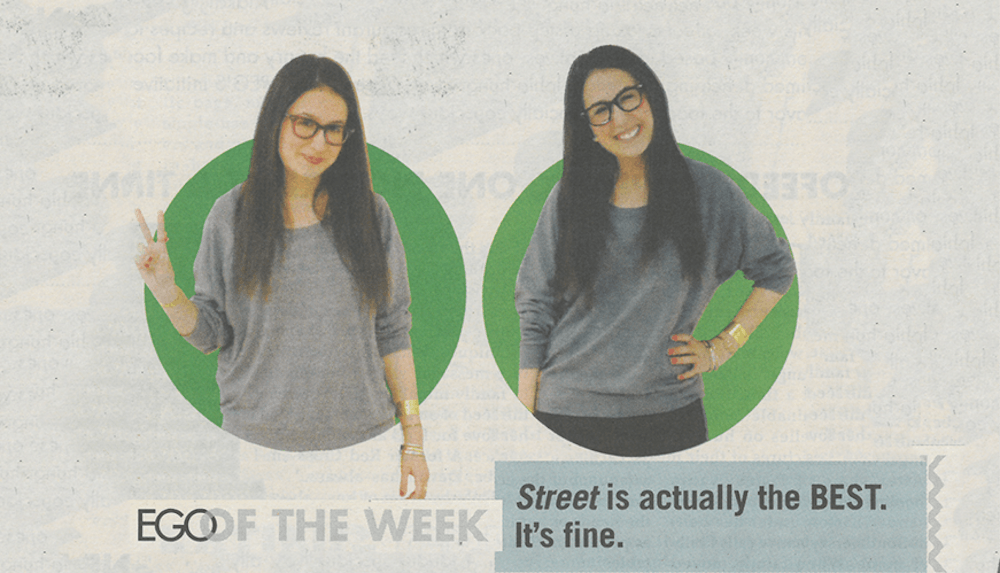Julia Rubin was Editor–in–Chief from January 2009 to December 2009.
This piece is part of a series of personal narratives written by Street alumni in order to celebrate the 50th anniversary of 34th Street.
“Filth and trash—an abomination to God. You're working for Satan himself!”
How did we know what we were doing at Street was working? We got voicemails from strangers telling us we had made a deal with the devil.
To work at Street in the late aughts was to fashion yourself a campus shit–stirrer, someone who loved Penn but also wanted to keep it humble. We alternately shared truths about, expressed admiration for, and poked fun at the administration and every campus group imaginable. This was the era of anonymous Shoutouts, Cultural Elite blurbs about the senior class, and a million different gossip columns—none of which, understandably, exist anymore.
We liked to think we had eyes and ears everywhere, thanks to nosier–than–thou staffers and a vast network of student (and in some cases, faculty) tipsters. Nothing was more satisfying than getting an email from a fellow student with no ties to Street, telling us about something weird we should look into. Our listserv was a constant stream of leads, from rumored shootings and IFC scandals to food truck drama and celebrity sightings. We wanted to know everything, and then we wanted to tell everyone about it.
This sometimes got us in trouble. There was the time we almost got sued, and then the other time we almost got sued. But mostly, we kept on pushing to be better and funnier than we were the week before.
It’s this impulse that led to the founding of Under the Button, a blog in the spirit of Gawker and Daily Intel, which meant we could put out stories even faster and connect with readers every single day. The internet was where the most exciting writing was happening in the greater media world, and we wanted to be a part of it. Plus, things weren’t looking so hot for print, and we knew we weren’t immune to what was going on in the industry at large.

Pictured Street editors: Raya Jalabi, Eliza Rothstein, and Julie Steinberg. Photo courtesy of Julia Rubin.
“Due to the economic turmoil of our world,” our managing editor wrote to the staff in mid–Great Recession 2009, “ads aren't selling very well for The DP (and thus Street is affected as well). That means LOTS OF ROOM for content this week. Please OVER ASSIGN your stuff. We're gonna need lots to work with.”
So we filled our pages with reported features about Penn’s place in the military–industrial complex and Street style shoots focused solely on white V–neck T–shirts; on our beloved blog we posted dispatches from Amy Gutmann’s Christmas party and our own version of Sex Diaries. Years later, we still say it was the best thing we were a part of at Penn.
There were, of course, frustrations. Editors blew deadlines—a lot. Some writers really didn’t like being edited. Stories fell flat, stories fell through. In these ways, it was like every other magazine, which only further elevated Street in our minds. This was a real publication, one that mattered to our peers and our professors and to people who found us on the internet and left comments like this: “God sees everything, even your dirty mind and what you are giving to people. Thank you, but keep your nasty newspaper to yourself.”
Julia Rubin is the editor of The Goods by Vox.







